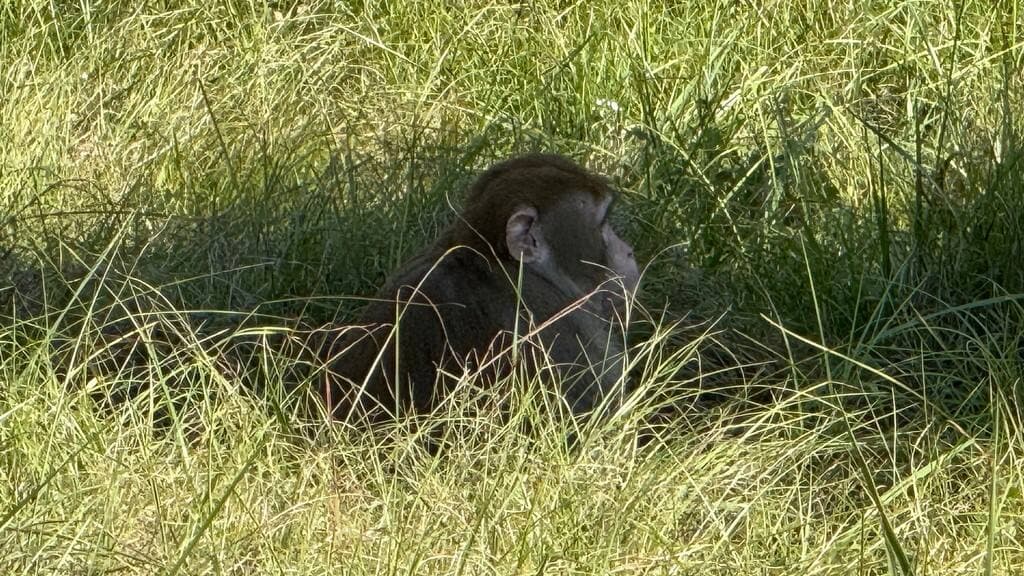We're loading the full news article for you. This includes the article content, images, author information, and related articles.
The incident in Mississippi highlights the contentious global debate over primate research and the potential dangers when containment fails, sparking discussion on biosecurity protocols relevant to research institutions worldwide, including in Kenya.

GLOBAL – A woman in the US state of Mississippi shot and killed an escaped research monkey on her property on Sunday, 2 November 2025, bringing a lethal end to a week-long search that ignited a fierce local debate over public safety and animal welfare. The incident has cast a spotlight on the secretive, high-stakes global trade in primates for biomedical research and the significant public fear generated by conflicting information from authorities.
The events began on Tuesday, 28 October 2025, when a truck transporting 21 Rhesus macaques overturned on a highway near Heidelberg, Mississippi. Following the crash, the Jasper County Sheriff's Department issued a public warning, based on information from the truck's driver, stating the escaped monkeys were aggressive and potentially carried diseases, including herpes. This initial alert prompted deputies to shoot and kill five of the eight monkeys that had gotten loose.
However, Tulane University, whose National Biomedical Research Center in Louisiana had housed the primates, quickly issued a counter-statement. The university clarified that while it had provided the animals to another research entity, it did not own or transport them at the time of the accident. Crucially, Tulane officials asserted the monkeys were pathogen-free and had not been exposed to any infectious agents. Despite this, by the time the information was corrected, public alarm had already taken root.
On Sunday morning, local resident Jessica Bond Ferguson discovered one of the three remaining at-large monkeys on her property. Citing the initial warnings and fear for her five children, she shot the animal. “I did what any other mother would do to protect her children,” Bond told the Associated Press.
The incident underscores the critical role of Rhesus macaques in global medical research. Sharing significant genetic similarities with humans, these primates are instrumental in developing vaccines and treatments for diseases such as Polio, HIV/AIDS, and COVID-19. The global trade in these animals is a multi-million dollar industry, with tens of thousands of primates, mostly long-tailed macaques, traded legally each year for research purposes.
This global enterprise has direct parallels in Kenya, where the Kenya Institute of Primate Research (KIPRE), a state corporation, undertakes biomedical and preclinical research using non-human primates. KIPRE's mandate includes developing animal models for diseases, contributing to early warning systems for emerging zoonotic threats, and maintaining a national breeding colony of primates for research. Such facilities operate under strict ethical and biosecurity protocols to prevent escapes and ensure animal welfare.
The fear expressed by Mississippi residents is not entirely unfounded, despite the university's assurances. Rhesus macaques are natural hosts of Macacine herpesvirus 1, commonly known as B virus. While often asymptomatic in monkeys, the virus can be transmitted to humans through bites, scratches, or contact with bodily fluids. In humans, B virus infection is extremely rare—with only about 50 documented cases since 1932—but it can cause severe neurological disease and is fatal in over 80% of untreated cases. This context explains the heightened sense of alarm and the swift, lethal response from both law enforcement and the public following the initial, unverified reports of disease.
While the Mississippi incident involved non-native animals escaped from containment, the underlying theme of human-wildlife conflict resonates strongly in Kenya. Communities across the country, from Murang'a to Nakuru, frequently experience conflict with native primate populations, such as baboons and vervet monkeys, which raid farms and homes, leading to significant crop losses. The Kenya Wildlife Service (KWS) is often called upon to manage these situations, which can sometimes involve translocating or, in extreme cases, culling animals. However, unlike attacks from more dangerous wildlife, Kenyan law does not typically provide for compensation for damages or injuries caused by monkeys.
As of Monday, 3 November 2025, two monkeys from the Mississippi crash remain at large. The incident leaves behind a complex web of questions regarding the transportation of research animals, the responsibility of authorities in communicating risk, and the ethical dilemmas at the heart of medical science. It serves as a stark reminder of the potential consequences when the controlled world of the laboratory unexpectedly collides with the public domain.
Keep the conversation in one place—threads here stay linked to the story and in the forums.
Sign in to start a discussion
Start a conversation about this story and keep it linked here.
Other hot threads
E-sports and Gaming Community in Kenya
Active 9 months ago
The Role of Technology in Modern Agriculture (AgriTech)
Active 9 months ago
Popular Recreational Activities Across Counties
Active 9 months ago
Investing in Youth Sports Development Programs
Active 9 months ago